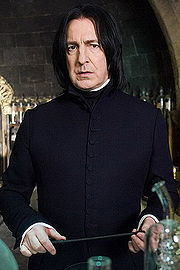One evening we were sitting in Highsmith’s basement apartment when the phone rang. It was Alphonso Prater, another interrupter. The two had a reunion of sorts when they joined CeaseFire; they shared a cell in the county jail 34 years ago. Prater’s voice is so raspy it sounds as if he has gravel in his throat. He told me that he became permanently hoarse after a long stint in segregation in prison; he had to shout to talk with others.Imagine needing to talk with other humans so badly that your voice is wrecked for life. "Segregation" sounds at once so sanitized (instead of "solitary confinement"), and at the same time so historical (racial segregation), that it doesn't quite fit. But I get what it means. This man felt so alone and did whatever he could to make contact with others, to stay sane.
I got to the NYT Magazine article via the PBS site about their AMAZING documentary, The Interrupters. I recommend this movie very highly.
As my long-time readers will know, I became radicalized a few years ago by an interview on Fresh Air with Dr William Schwab about gun violence in Philadelphia. I felt like I had to do SOMETHING, and I started on a path.
I was already political, but I am trying to turn the anguish that I feel when I hear these stories into some kind of action, instead of ignoring it. There is a good link here on the Interrupters site about How we ignore the long-term effects of violence on children, adults and our communities.

I think part of the action, sometimes, is as simple (not easy) as telling or hearing the story. In another part of the Interrupters site, there is a display of the shrines for the deceased. I am always attracted to the shrines because of all the religious art and symbolism that is there - funerary art styles endure through time - and these shrines tell stories. We can hear the voices:
The interactive shrine sequence was the brainchild of the film’s outreach coordinator Anton Seals, who grew up in the south side of Chicago. ”I was thinking about all of the different friends I’d lost over the 38 years of my life,” he said. “People usually forget that these people had lives, that they’re humans, not just victims.” He sees the project as an opportunity to give people an outlet for self-expression, and to perhaps even spur them to action, such as learning more about violence or organizing politically.
Maybe the best way for me to help, to Do Something, is to LISTEN to the stories, HEAR the voices. The people enduring this violence and pain are humans suffering "...they're humans, not just victims." This helps keeps me focused on what I can DO:
Is it enough? I don't know. But if feels less overwhelming if I think of the concrete actions I can take, and stay "right sized." I can welcome a stranger, and I can hear their story. That is how I can seize the moment, today.
For I was hungry and you gave me food, I was thirsty and you gave me drink, I was a stranger and you welcomed me, I was naked and you clothed me, I was sick and you visited me, I was in prison and you came to me.’ Then the righteous will answer him, saying, ‘Lord, when did we see you hungry and feed you, or thirsty and give you drink? And when did we see you a stranger and welcome you, or naked and clothe you? And when did we see you sick or in prison and visit you?’ 'The King will reply, ‘Truly I tell you, whatever you did for one of the least of these brothers and sisters of mine, you did for me.’ Matthew 25:35-46














